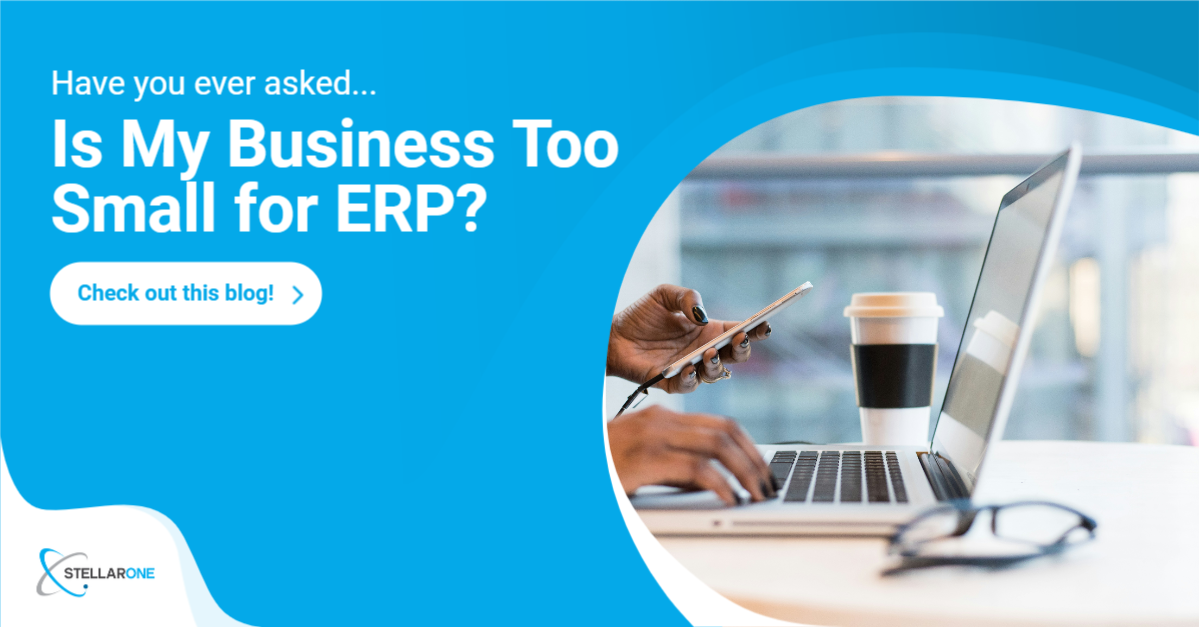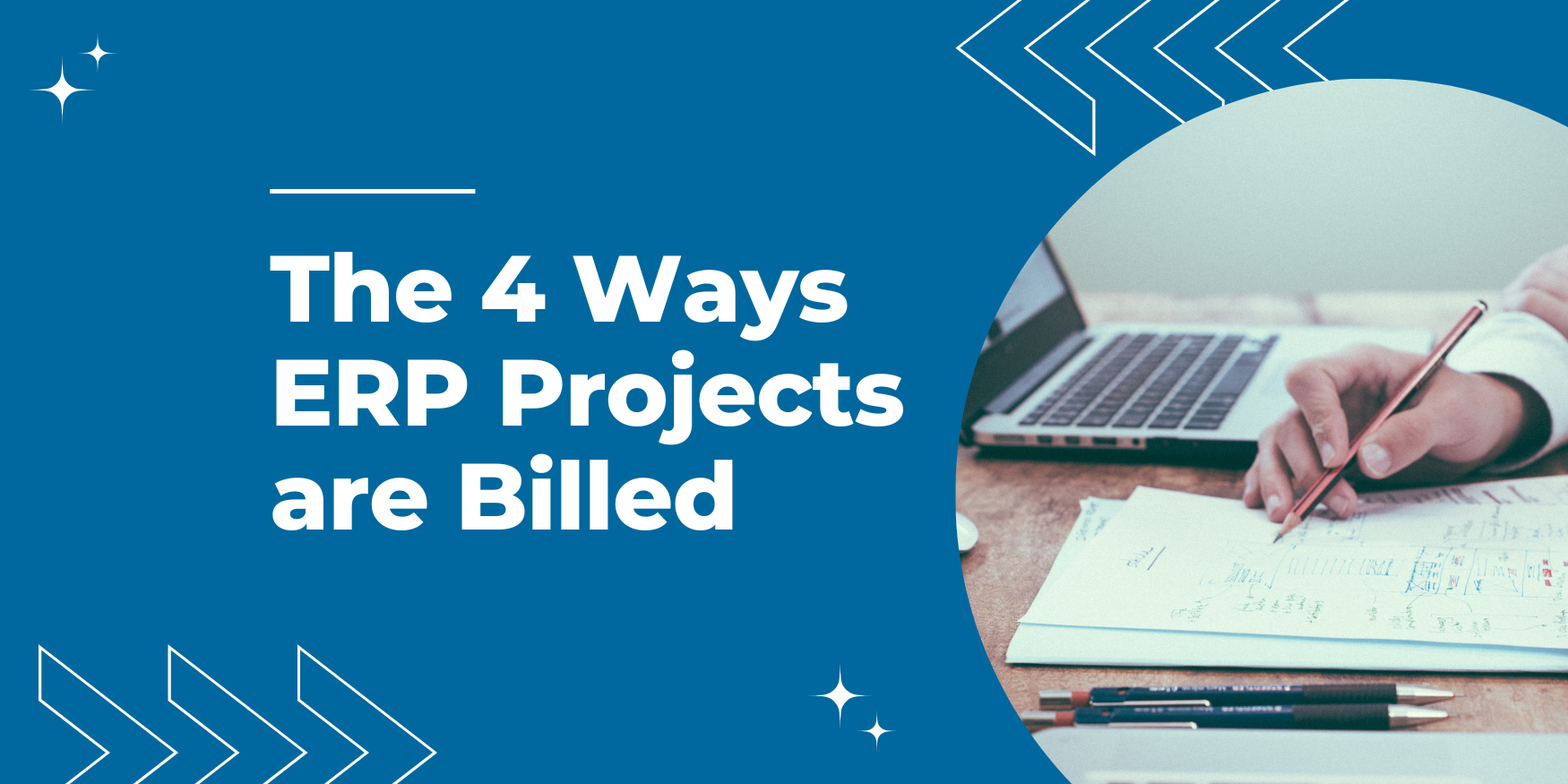Is My Business Too Small for ERP?
When it comes to implementing an Enterprise Resource Planning (ERP) system, many small business owners wonder if their company is too small to...
3 min read
Ben Grassi : April 04 2024

An ERP system is a single software system implemented to connect all processes and business units in one central database to remove inefficiencies, data errors, and manual processes. While running your new start up out of a business bank account, some spreadsheets and an email account may have worked when you were a one dimensional and one person operation… as your business grows and becomes more complex managing spreadsheets quickly losses its appeal and value. This is where an ERP system built to handle sales, inventory, accounting, finance, reporting, and many other business operations becomes essential.
With any software selection there are many factors to consider such as cost, market acceptance, accessibility, and product maturity. While all of these are important, an ERP’s available feature sets to meet your business’s specific needs is your primary concern. But can we really expect one system to do everything you could ever want or need?
No, there is not but there are ways to get the most out of your ERP system and increase your reliance on a single system rather than building an integration.
A good first approach is using the Pareto Principle or 80/20 rule to identify a system that will handle most of what you need. Simply put, let’s find a system that can handle 80% of your business needs and then problem solve for the other 20%. Most of your daily business needs revolve around Accounting Transactions, Sales to customers, Inventory Management, and Payment Collection. Let’s choose a system that can handle all of that well to ensure we get a single system most of our team can work out of every day.
In today's ERP market, it's crucial to recognize that choosing the right implementation partner is more critical than the software itself. Given that a typical ERP system's life can span is 10 or more years, making a wrong choice can lead to significant setbacks, like abandoned projects or costly fixes. Therefore, while it's important to compare different ERP options, finding the right partner stands out as the key to success. A good partner will enable you to solve your toughest business problems while preventing unnecessary customization. This shift in focus from software capabilities to a collaborative partnership underscores that the right relationship is fundamental in navigating the complexities of ERP implementation and ensuring the system's future growth and adaptability.
We have already stated that there is not a system out there that will do absolutely everything you could ever want, and some level of integration will probably be necessary. A good example of this is to recognize that no ERP will mimic what you can do in an Excel Spreadsheet, however, let’s be sure our system can easily export to Excel. Not everything needs to be integrated but being able to work between tools easily is equally as important.
When it comes to the question of what to integrate and what to seek Out of the Box in an ERP system, look at a software’s Core Competencies…what does it do best? Does the solution have a robust and proven accounting backend that can handle advanced accounting transactions and reporting? Does it handle payroll? Are those critical factors for your business to have in an ERP system? You can purchase an ERP system for its accounting solution along with a slew of other powerhouse features like inventory tracking, special pricing, and automation. There are many other solutions out there that provide a good Payroll solution and can easily be utilized outside of the ERP system to ensure our employees are paid. Working with Out of the Box Core Competencies is always easier than building it yourself or integrating.
We just spoke about Core Competencies; certain software packages on the market are just better and built to intentionally fulfill specific needs. Ecommerce sites provide essential functionality to many businesses and with their widespread popularity integrating an ERP system to an eCommerce platform does not have be some long-drawn-out process. Many ERP systems now have pre-built connectors or integrations in their ecosystem.
I strongly recommend during your ERP evaluation process that you map out all your current systems and identifying what may need to be an integration. This is essential to designing an accurate project plan with your ERP partner and ensure you don’t miss a vital portion of your business that could be both costly and time consuming problem to solve later.
Also, where you feel you have unique business requirements or competitive differentiators that are not handled well in an ERP system, it is much more efficient and sustainable to integration to a third party solution rather than customizing the ERP system to fit your needs. It is rare that a business does something so unique that there isn't a good software solution for the problem you are trying to solve.
No system will be a do it all system but adding endless integrations is also not attractive, efficient, or cost effective. Utilizing the points made above alongside a reliable ERP partner you can limit how many different integrations you need to go out and purchase or build. Consolidating the majority of your business operates under a singular ERP system while strategically choosing integrations will provide the most value to your business and ensure you maintain firm grasp on all your business operations.

When it comes to implementing an Enterprise Resource Planning (ERP) system, many small business owners wonder if their company is too small to...
Understanding On-Premise and SaaS Solutions

Introduction In today's rapidly evolving business landscape, project management is a critical element of success. As companies continue to adapt and...